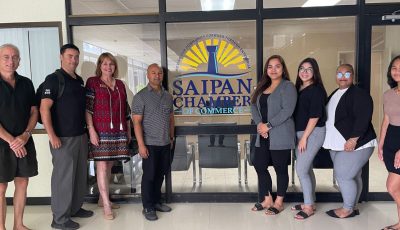Here’s an idea
I lived on Saipan with my parents during the boom years. In fact, I finished high school at Mt. Carmel in 1990 and later earned associate degrees at NMC in 1992. I currently reside and work here in the United Arab Emirates.
Some time ago, I was pleasantly surprised to be served Fiji bottled water at an upscale coffee shop in Dubai Mall. I would later discover that it is also being sold in supermarkets. I thought that if a small island nation like Fiji can export a product that is able to effectively compete with global brands such as Evian and Perrier, then why can’t the CNMI do likewise? I must add that over the weekend, I watched live the Abu Dhabi Golf Championship—the same high-profile annual event that paid Tiger Woods around $2 million as an appearance fee in 2012. And guess what? The official and exclusive bottled water being sold and distributed at the venue was none other than Fiji water!
I believe the repatriated profits from the sale of Fiji water benefits the Fijian people at least in two major ways. First of all, they are a source of additional tax revenues that the government can use to fund public services. Second, they represent money that can potentially circulate in the local economy. If the bankrupt CNMI government can look into the feasibility of exporting bottled water via establishing a semipublic corporation or a joint venture with private enterprises, then not only can it possibly earn additional revenue, but also it can have a creative marketing tool for the struggling tourism industry. For instance: use a self-promoting brand name such as “Marianas” water; add in the label a picture of taga stones, flame trees and/or locals in traditional costume; and share a QR code and/or URL that directs to an informational/interactive website for CNMI tourists.
During the Japanese period, CNMI lands were productive in raising sugar cane, so that tells me that growing agricultural products for local consumption and for export can be a viable source of income. If developing agriculture is not a priority of the current local government, then it must inspire cash-strapped groups (such as CNMI retirees) and entrepreneurs to think of possible products to export, so that there would finally be a replacement for the cash cow that the garment industry was.
A last resort would be to push for the end of food stamps so that a number of jobless locals would be more motivated to find work or start businesses, help jobless locals find employment off-island if they cannot acquire one in the Commonwealth, and rely on remittances of “overseas Chamorro/Carolinian workers” (OCWs).
Oscar N. Ragus
Al Ain, United Arab Emirates



























